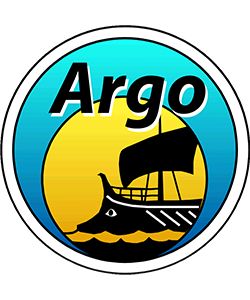Argo data sources
There are many sources of Argo data depending on the desired format, source and application. Browse through the different options below to learn more. Some of the ways listed below are maintained by the Argo Program and Argo Data Management Team, while some are created and hosted by others, but highlighted here.
If you use any Argo data, please cite the Argo DOI.
- Argo profile, trajectory, meta and technical data files
- Real time and delayed mode quality controlled data available
- Maintained by Argo Data Management Team
- Served at Argo GDACs via ftp, http, rsync, DOI, errdap, thredds
- Data in NetCDF format
- Selection tools available
- Auxiliary directory at GDACs to access experimental data
- Argo Archive at NCEI
Real time Argo data go out on the GTS for operational centers to gather within 12 hours of the observation for use in their forecasting and prediction models.
- Core Argo profiles only
- Real time quality control only
- BUFR format with QC flags
- Maintained by Argo Data Management Team
An array of tools have been developed aimed at both beginners and experts to help users gather, manipulate, visualize and quality control Argo data.
- Software tools
- Quick start guide
- Data FAQ
- Argo DMQC GitHub repository
- Argo RTQC GitHub repository
- EuroArgo GitHub repository
- Developed by both people involved in Argo and those outside of it
- Products using Argo data and sometimes other data sources
- Gridded products of temperature, salinity, mixed layer depth, etc.
- Curated profile collections
- Velocity products
- data often in NetCDF format, sometimes in other formats
- Not maintained by Argo Data Management Team
This collection of websites and tools allow non-scientists and scientists alike to quickly look at Argo data plots. Items listed below are not present in all tools.
- View Argo profile, trajectory, meta, technical and gridded data
- Save Argo data and/or plots
- Hosted by people directly involved in Argo and by people outside of Argo
- Access Argo profile data in JSON
- API access to curated Argo profile database
- Monitor Argo statistics
Argo is the primary source of subsurface ocean data at operational centers around the world. Find out which centers assimilate data and what types of data are available.
- Not maintained by Argo
- Data often in NetCDF format
